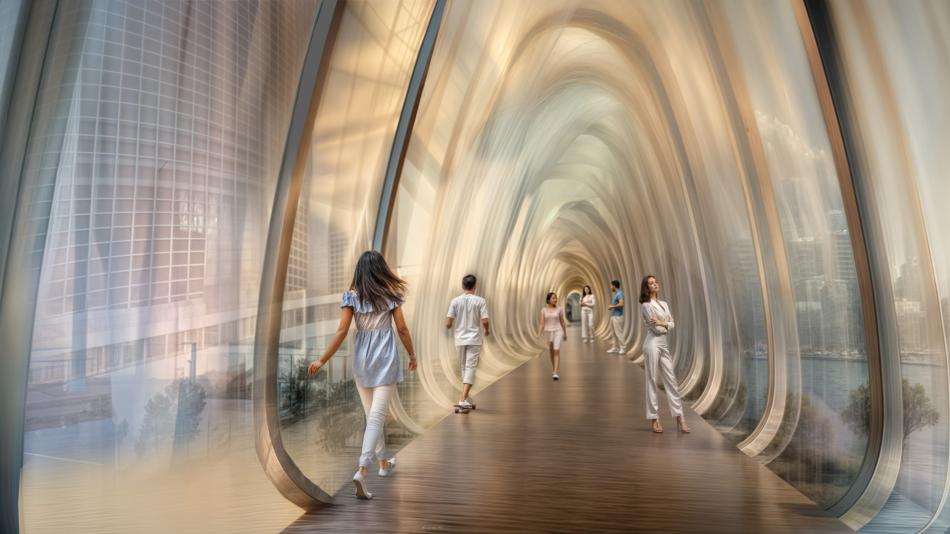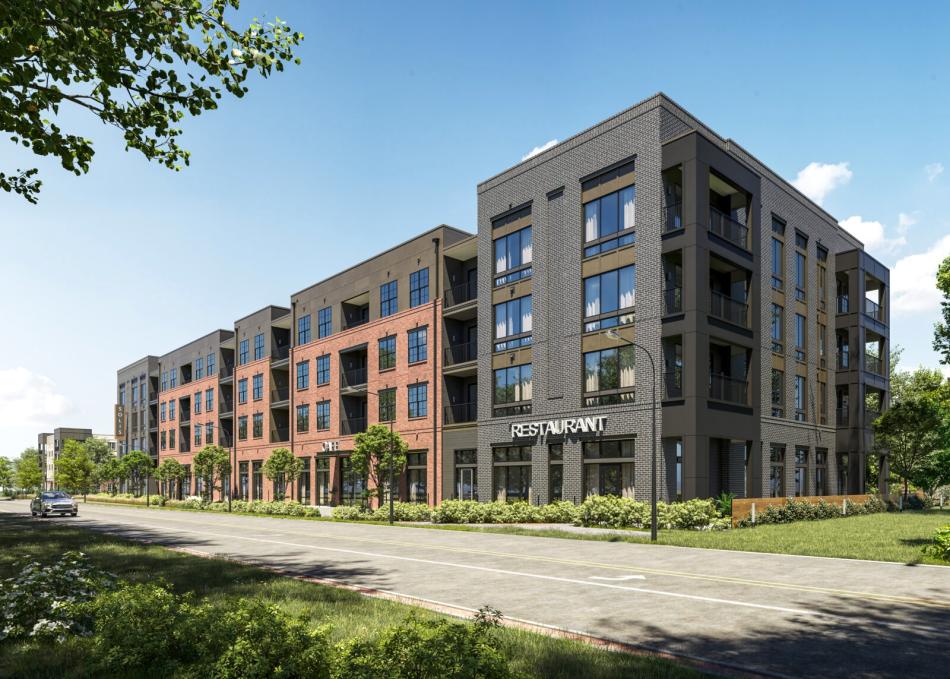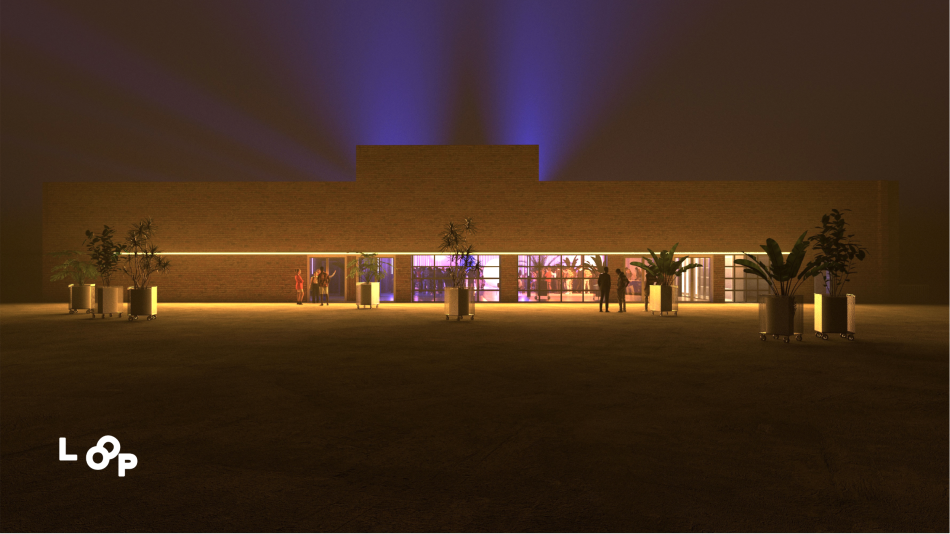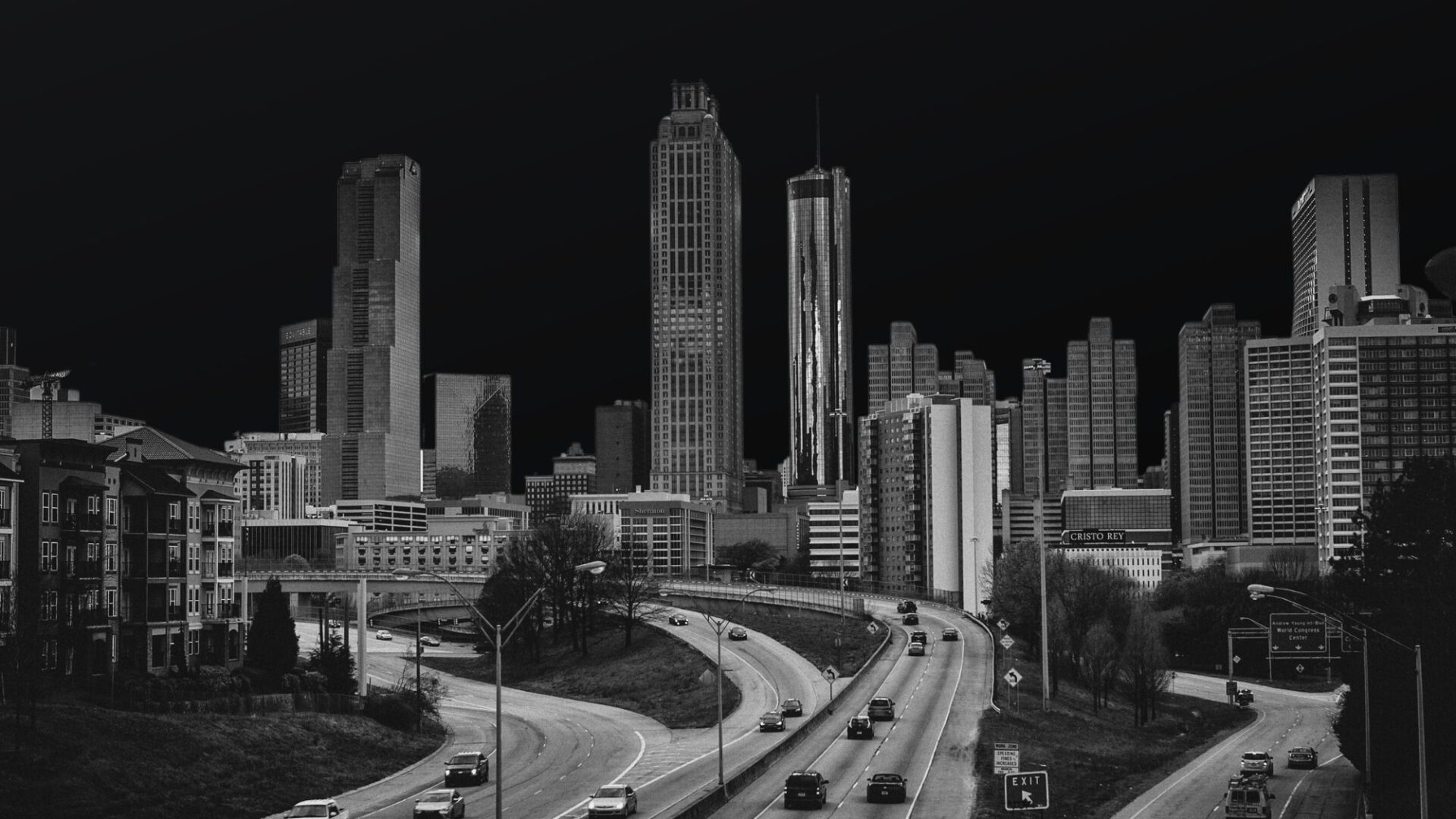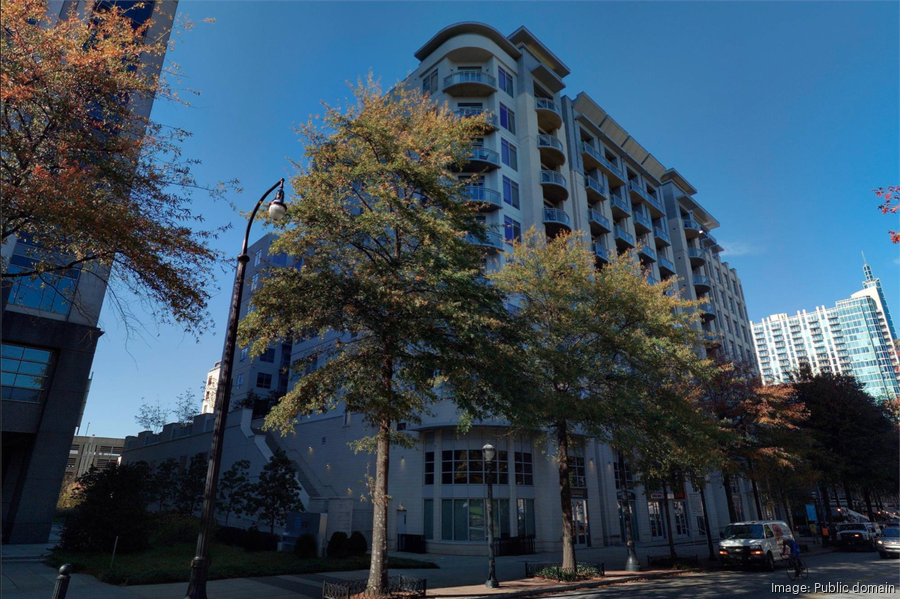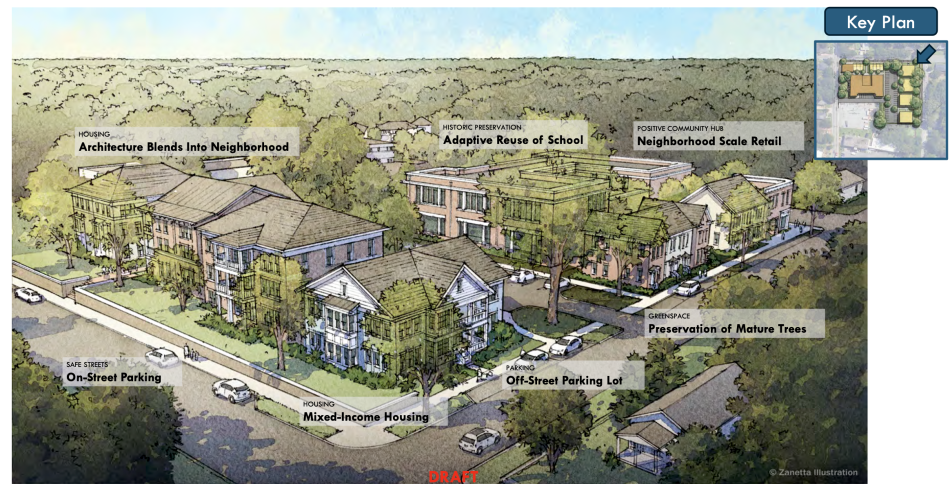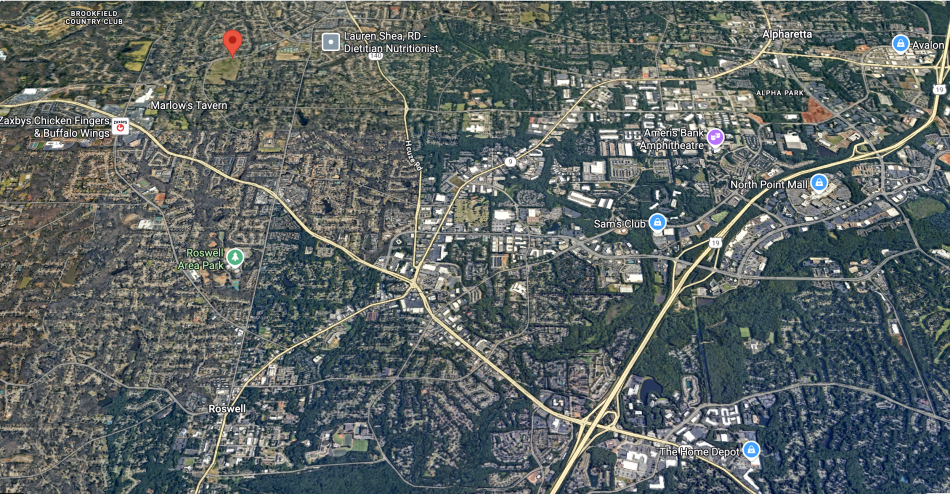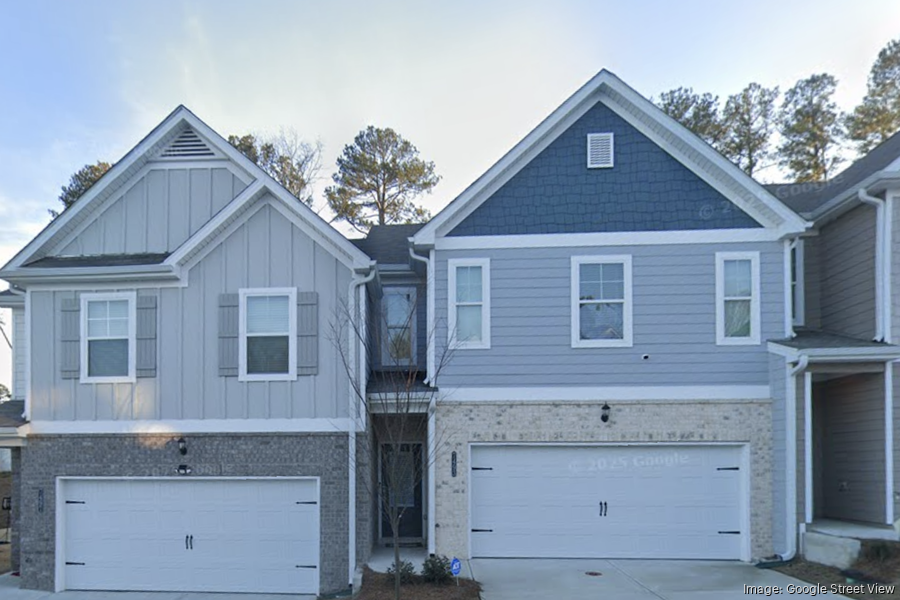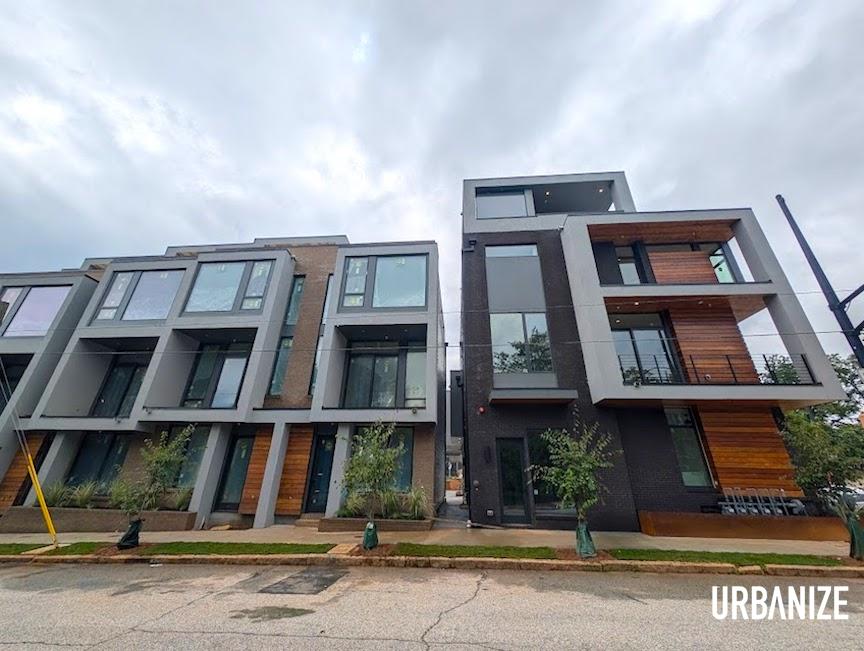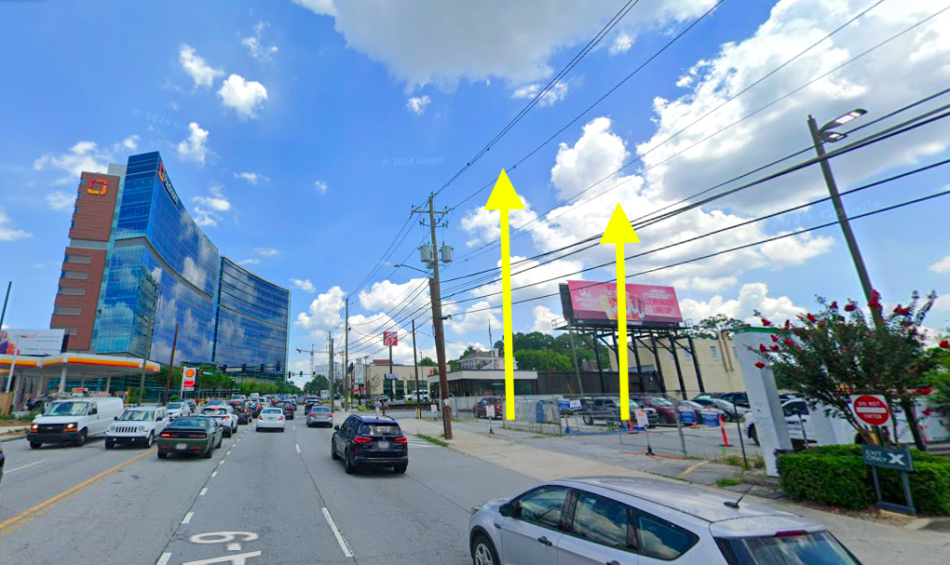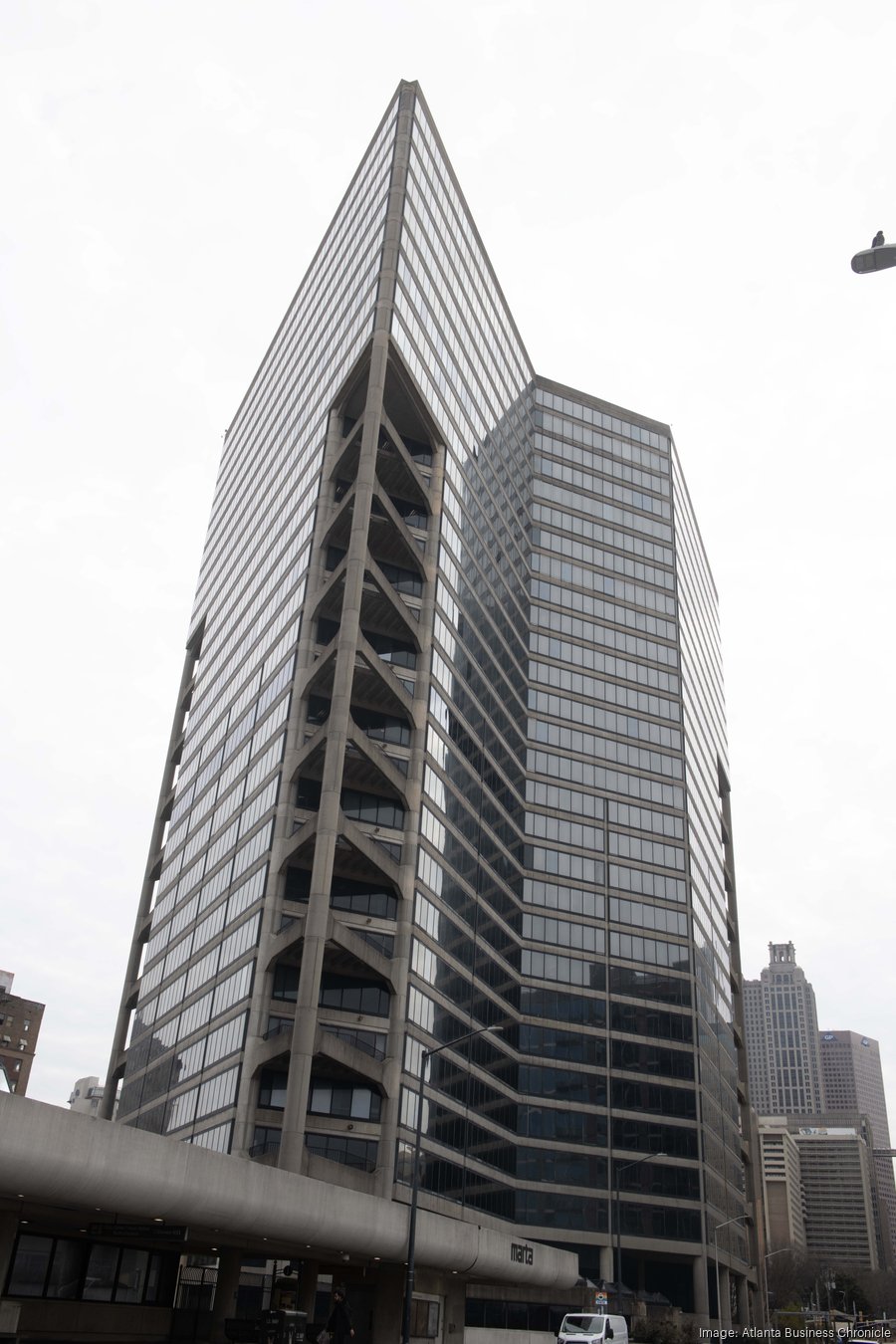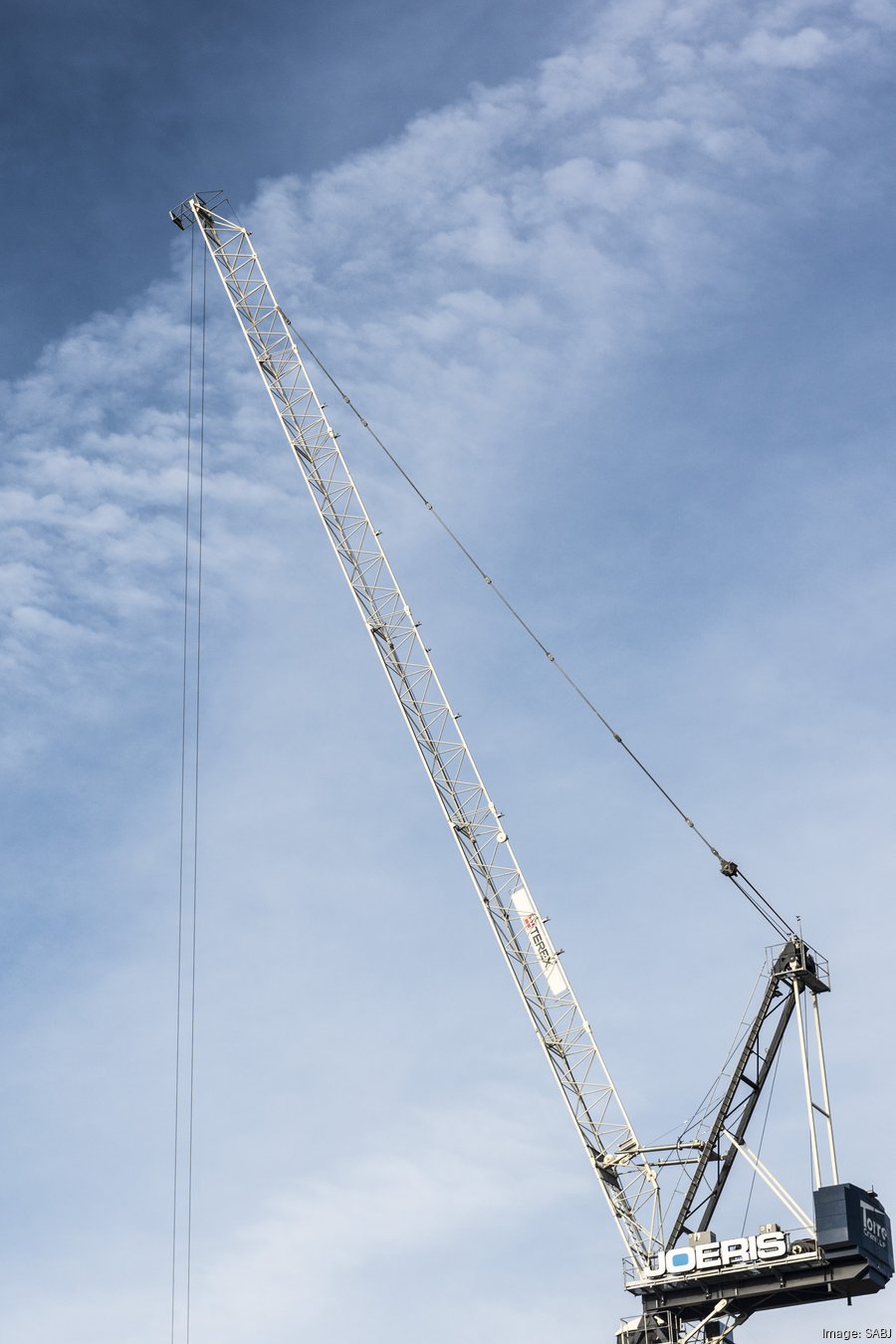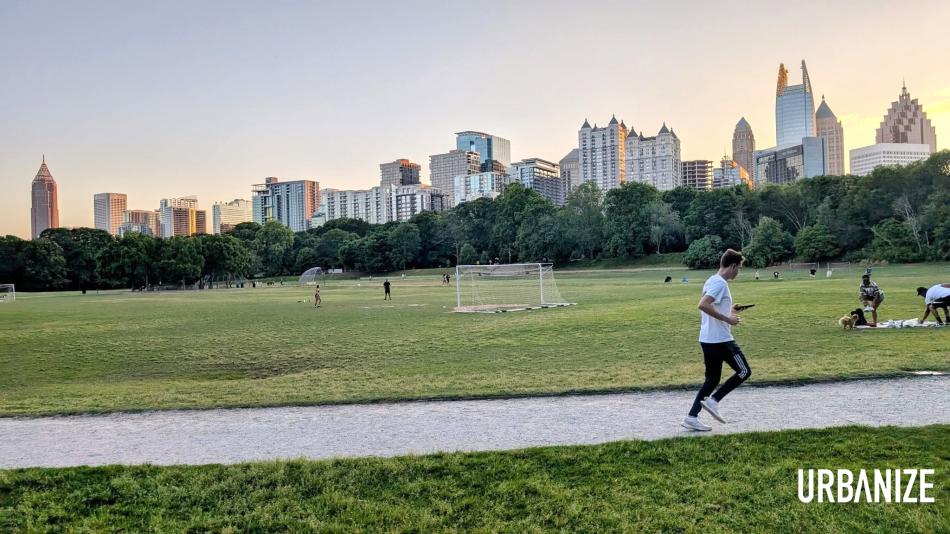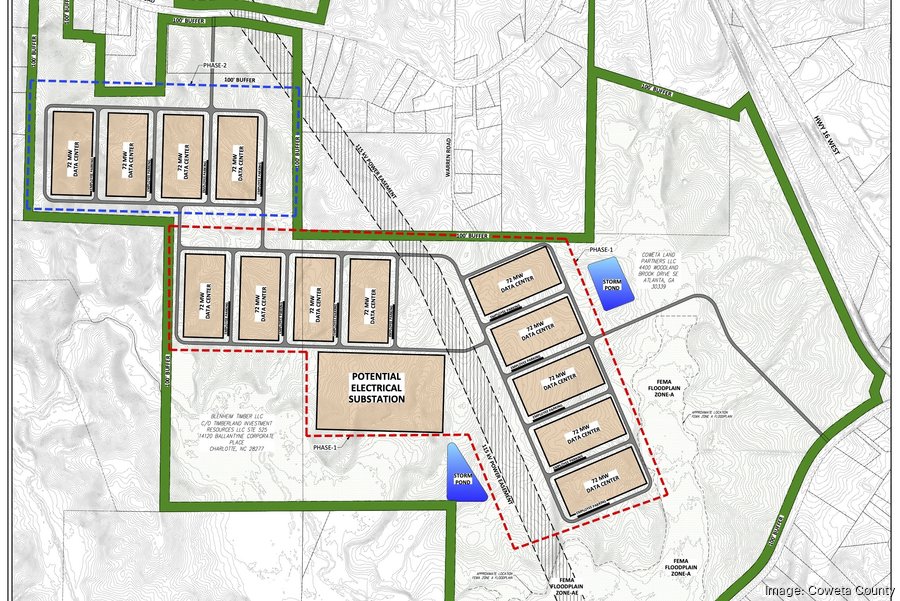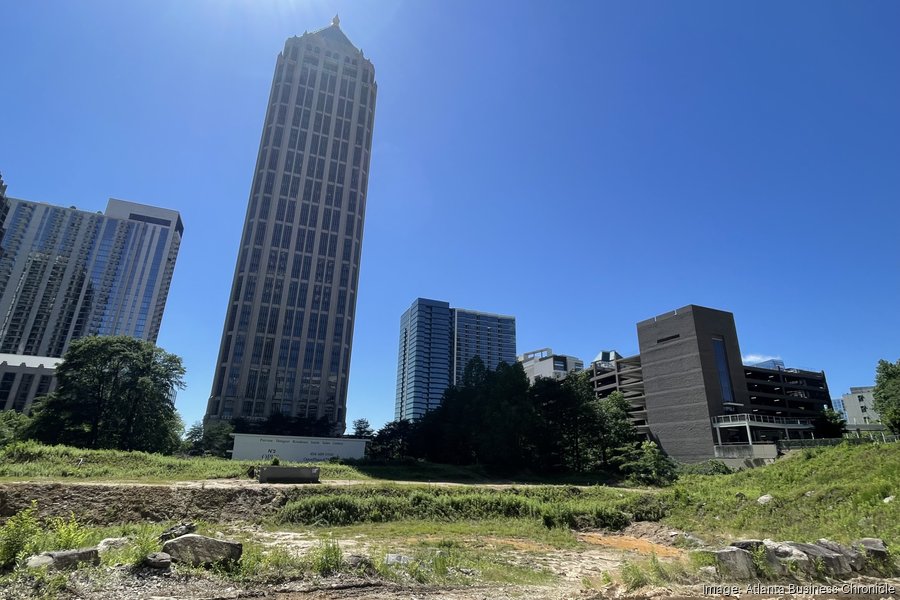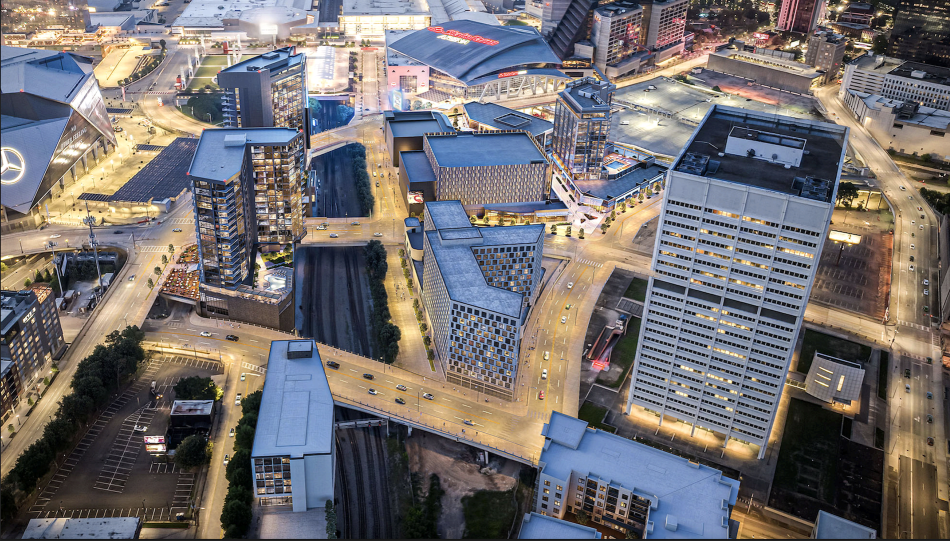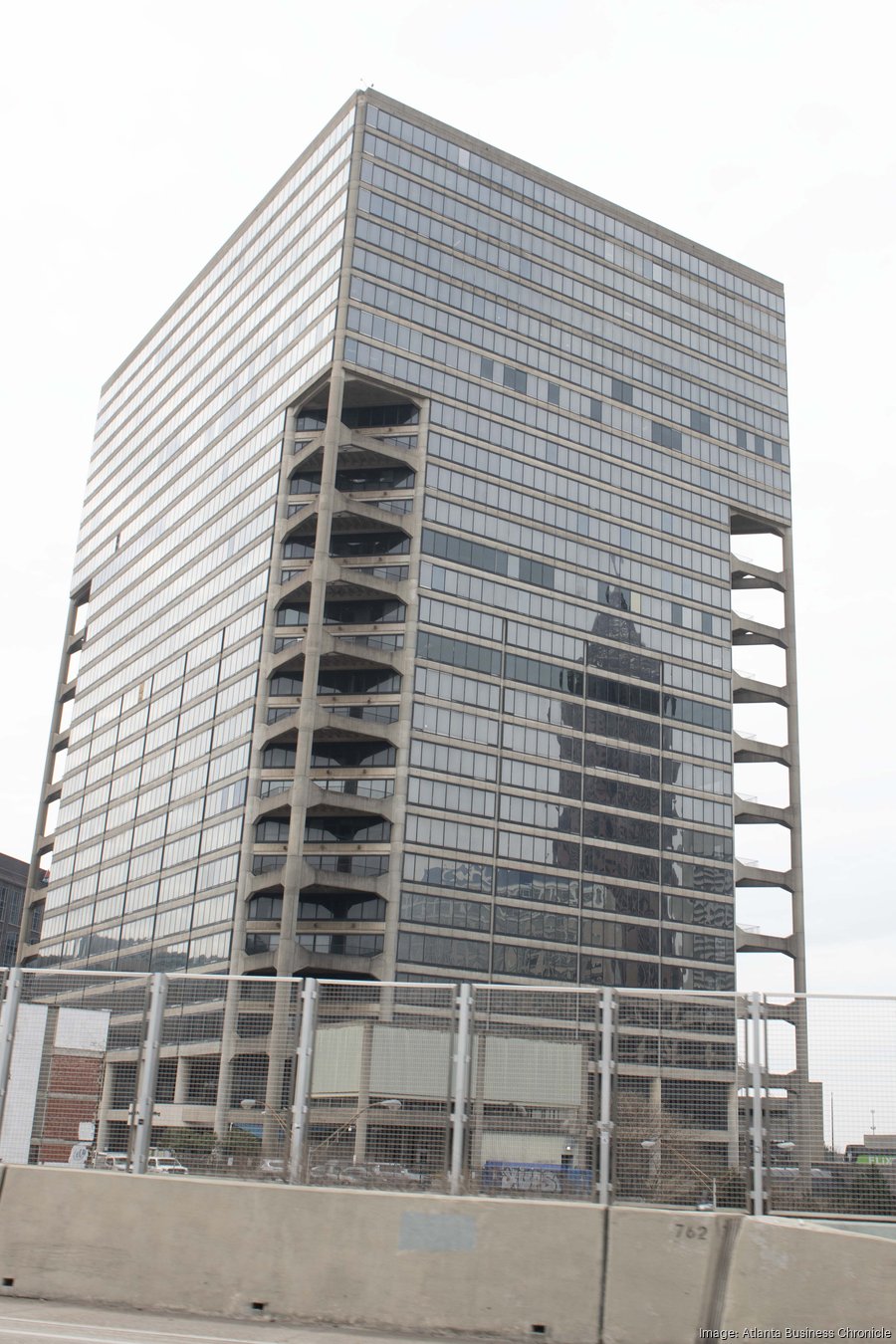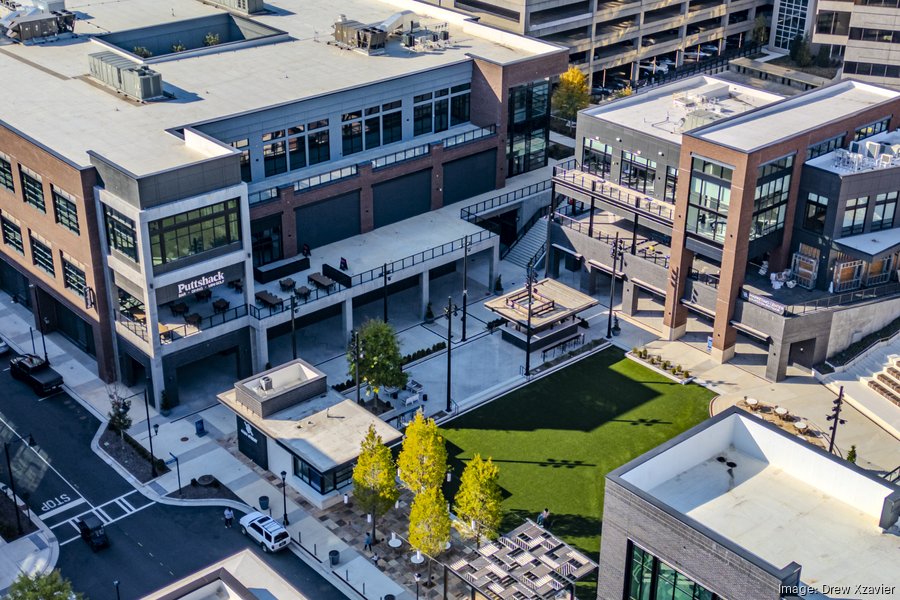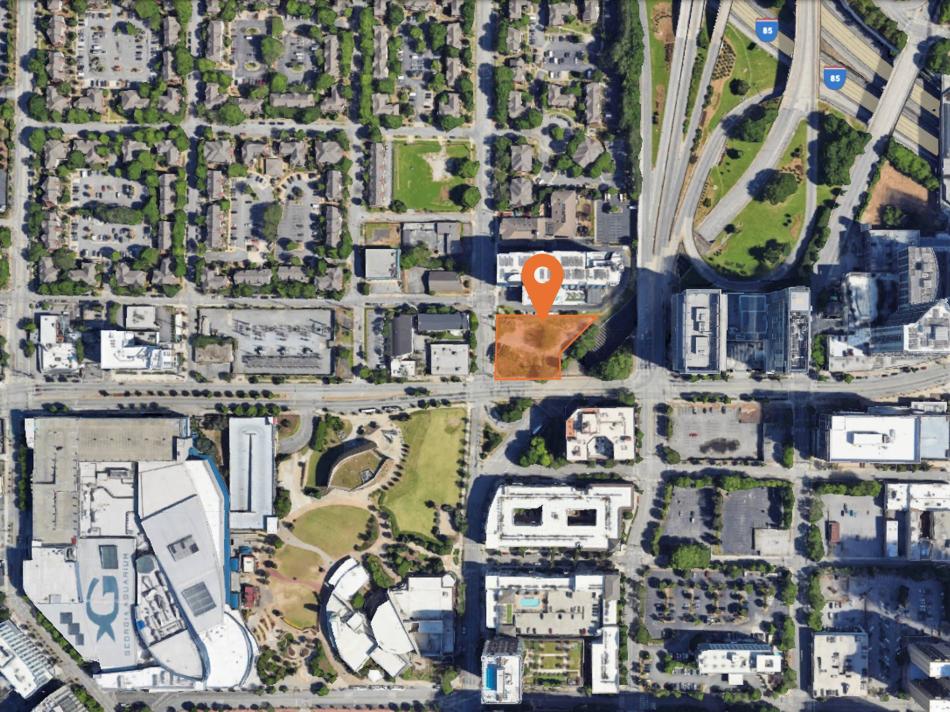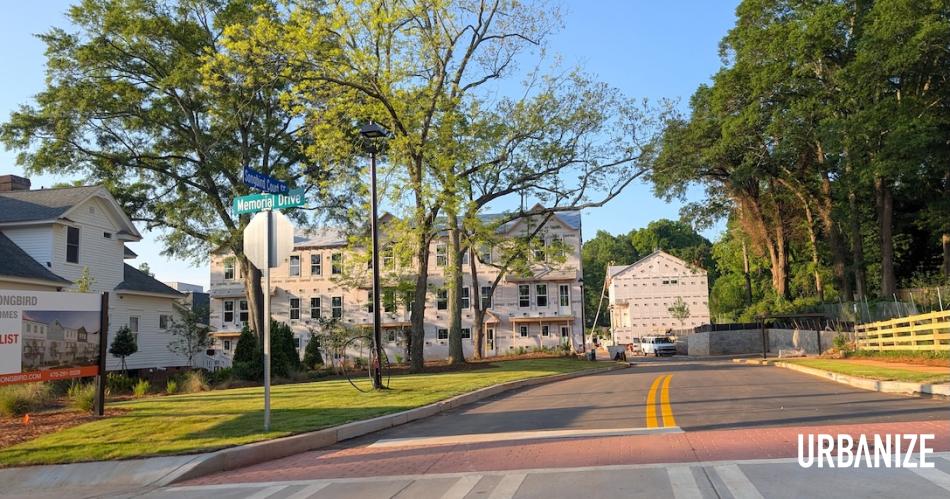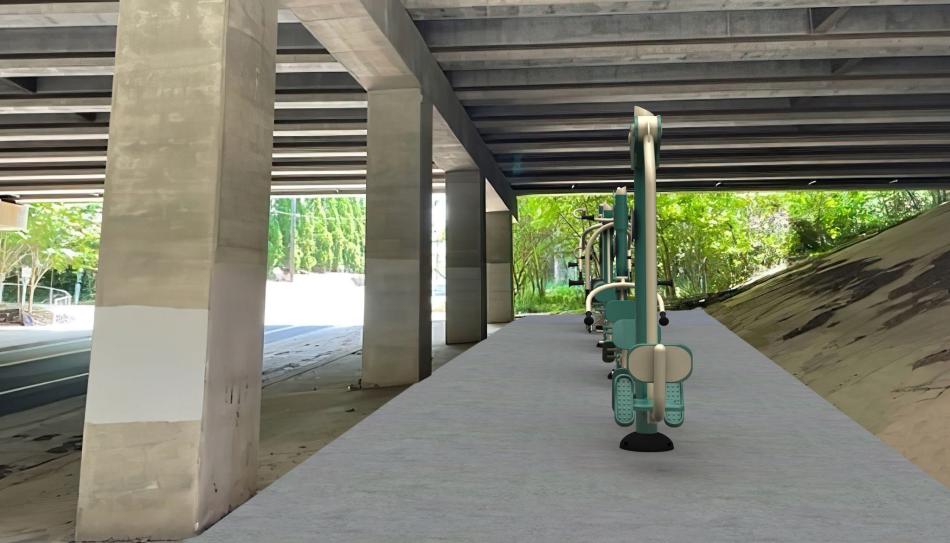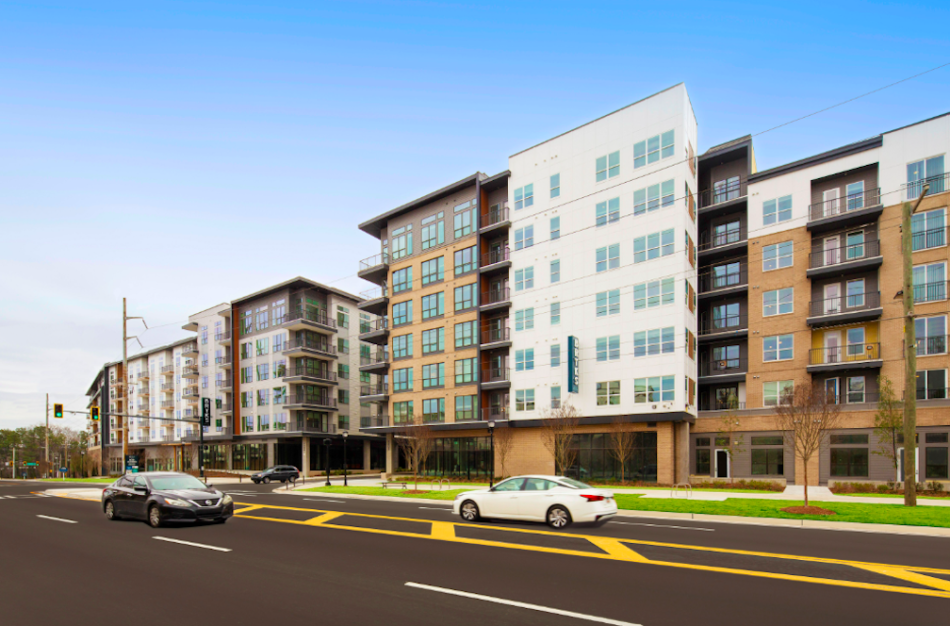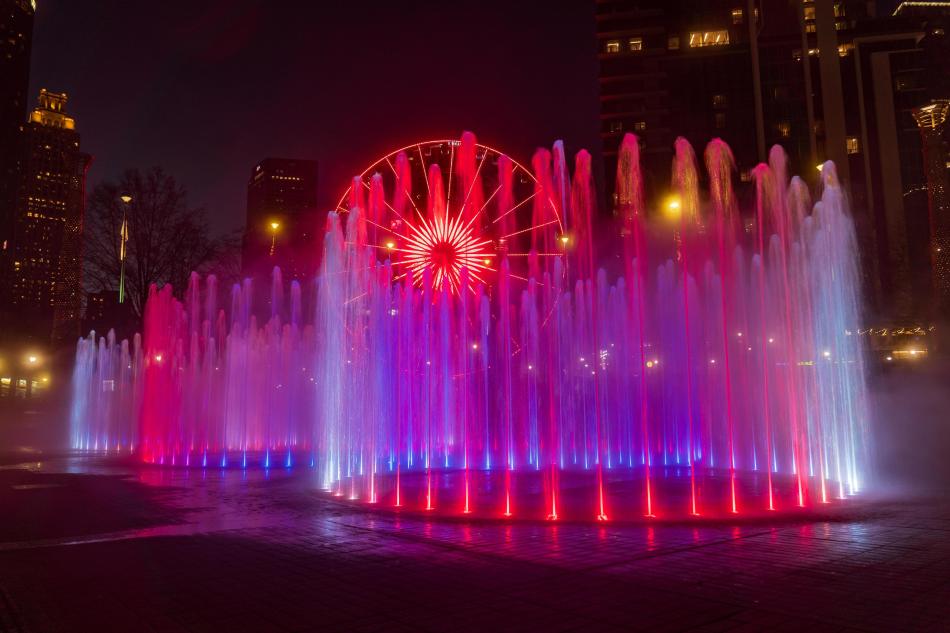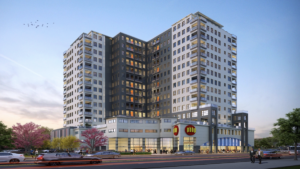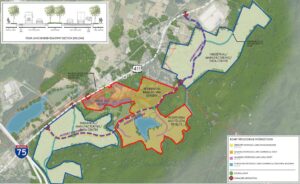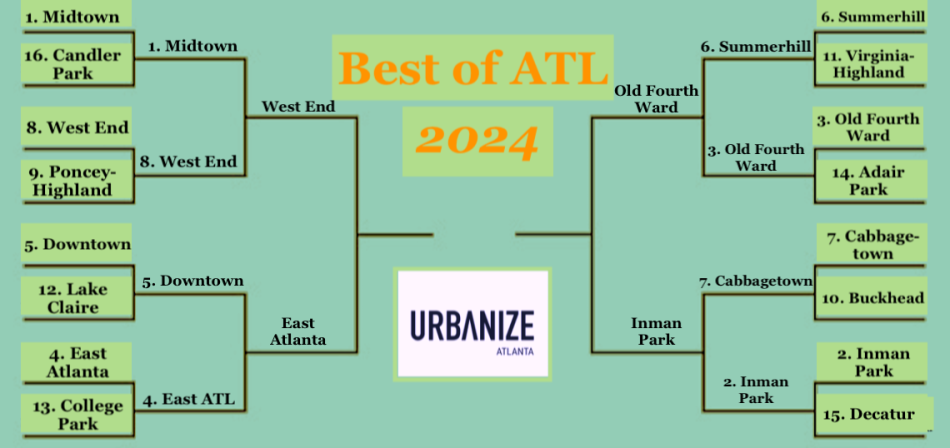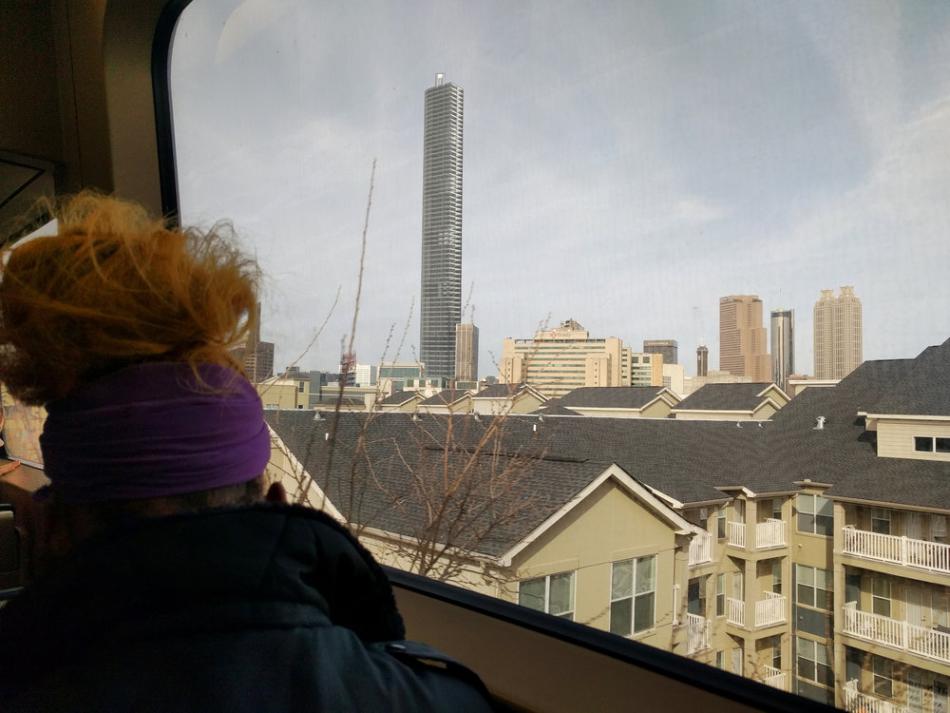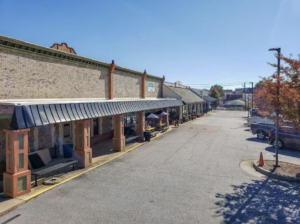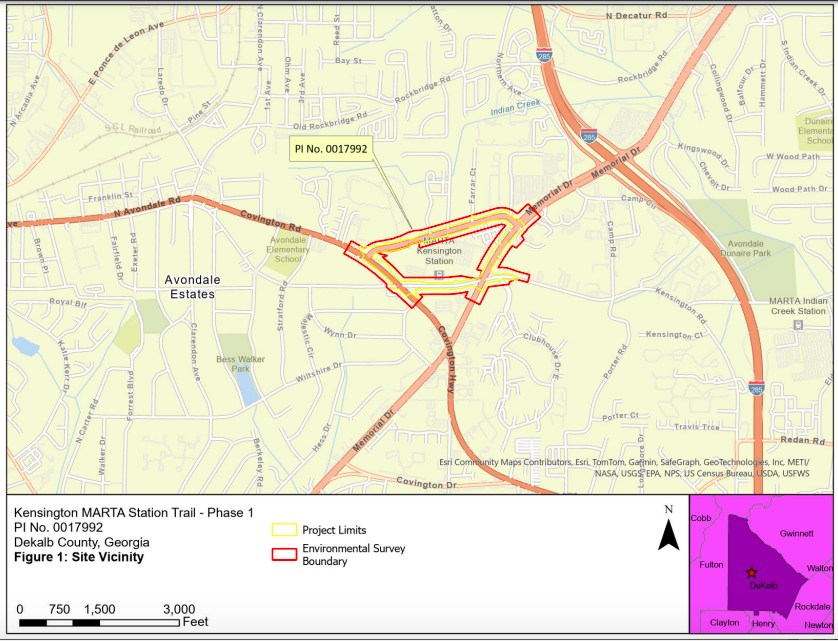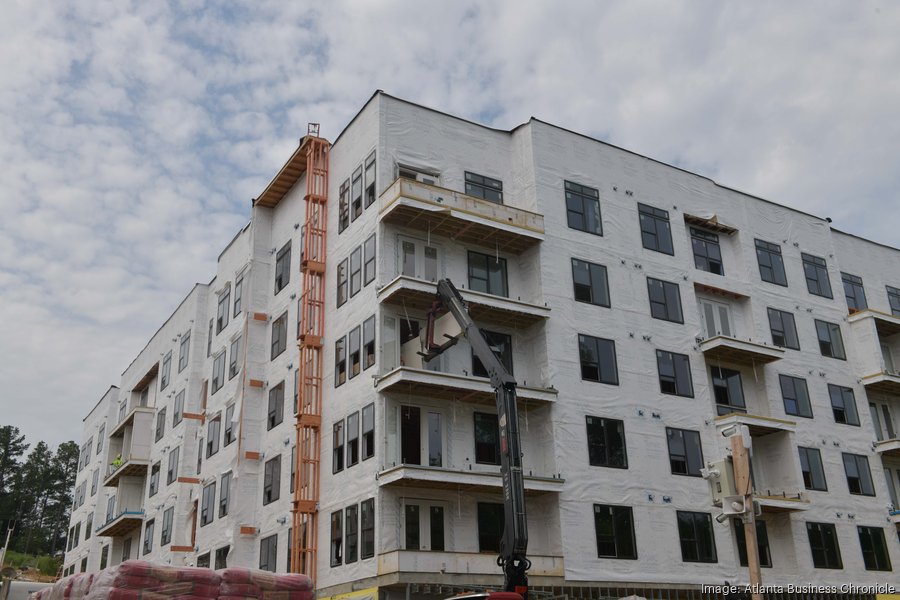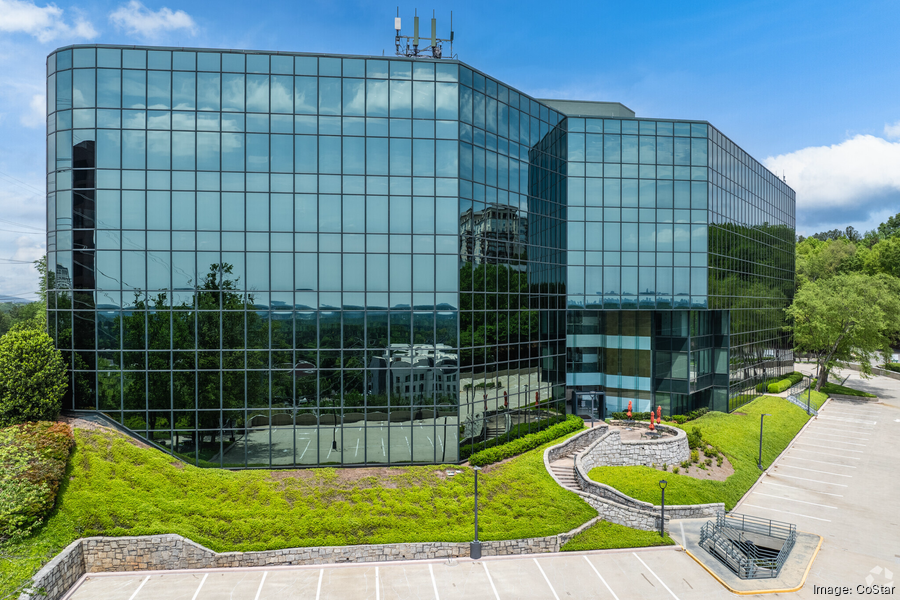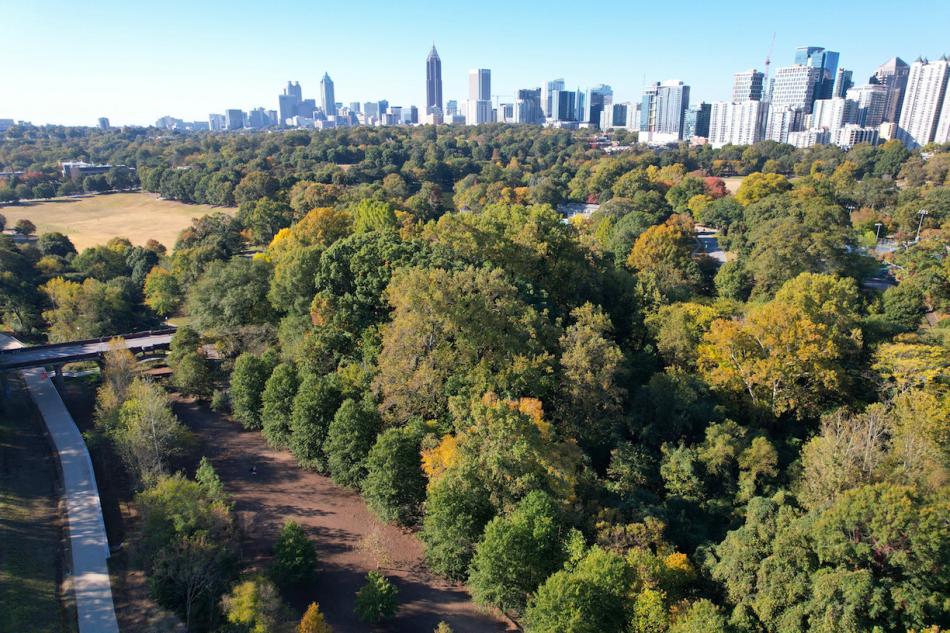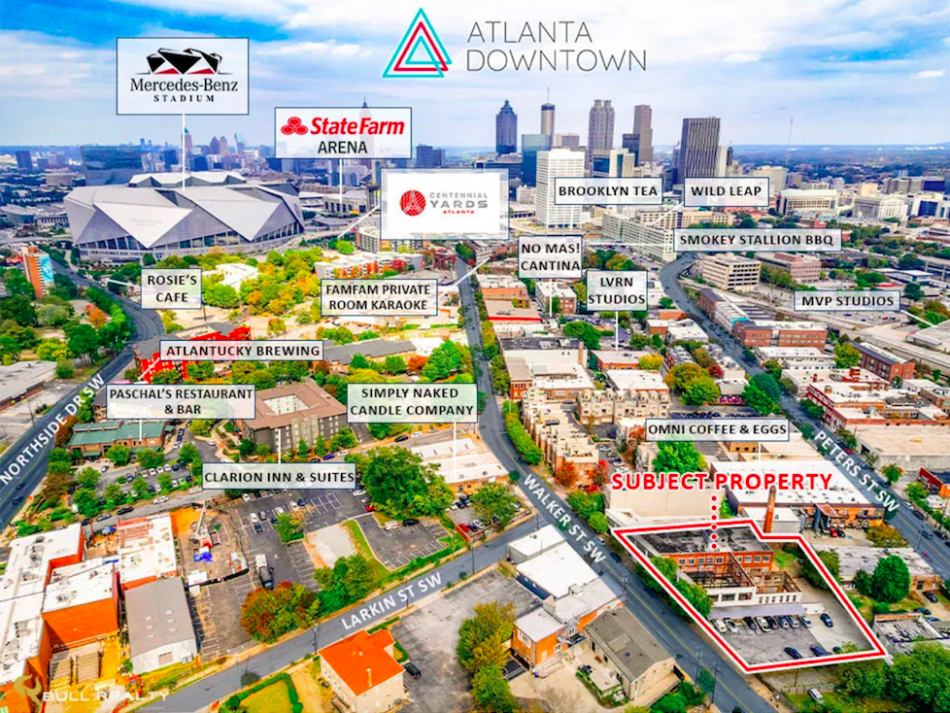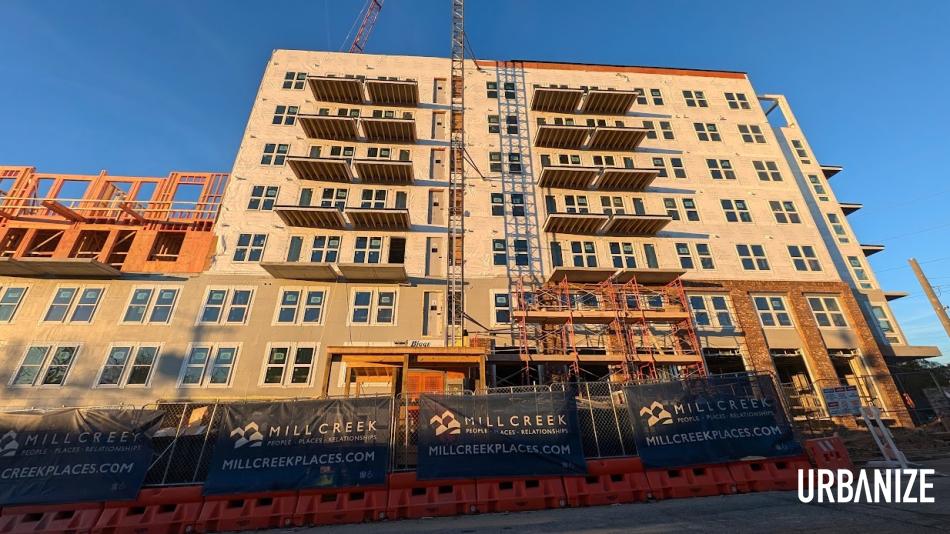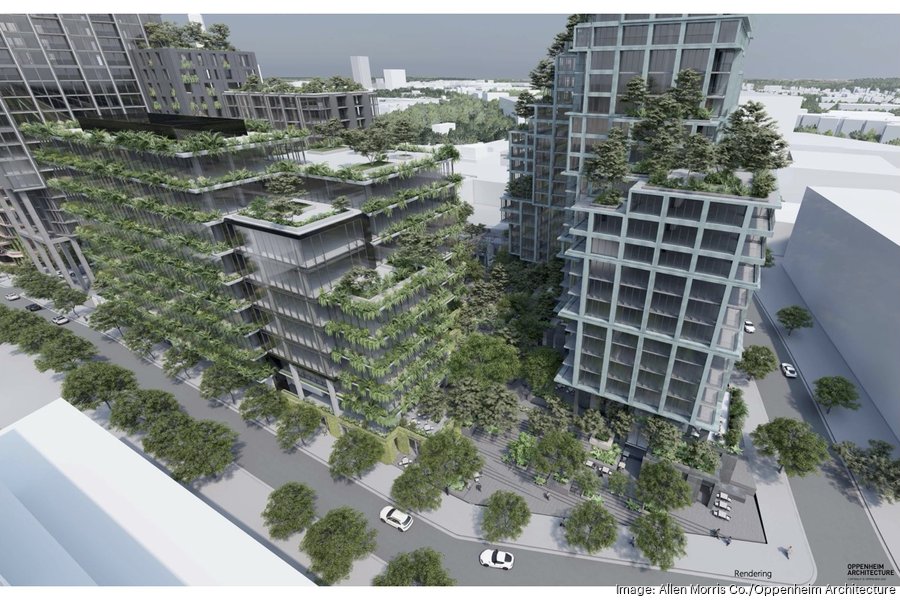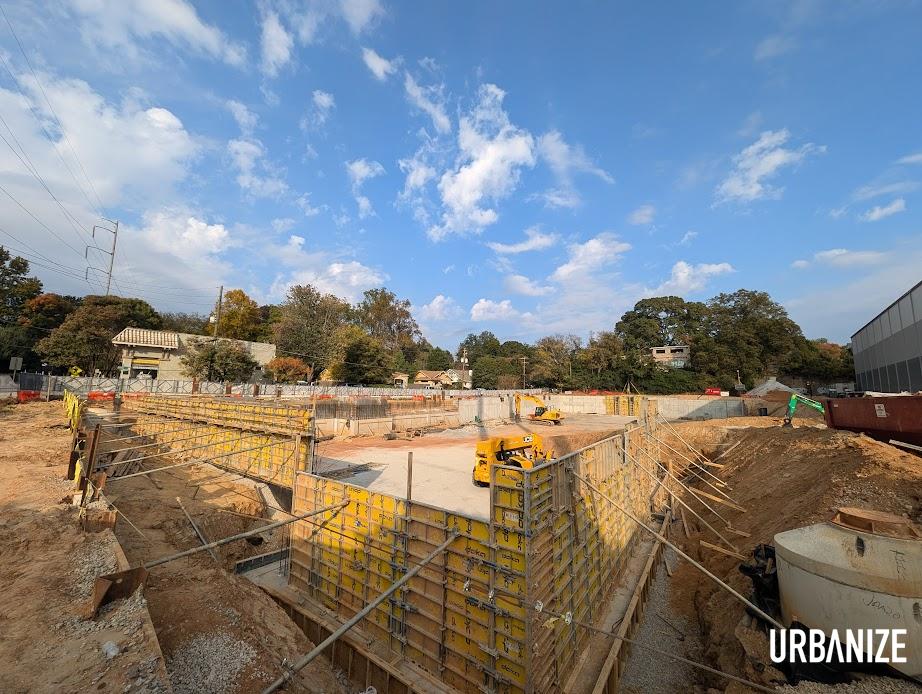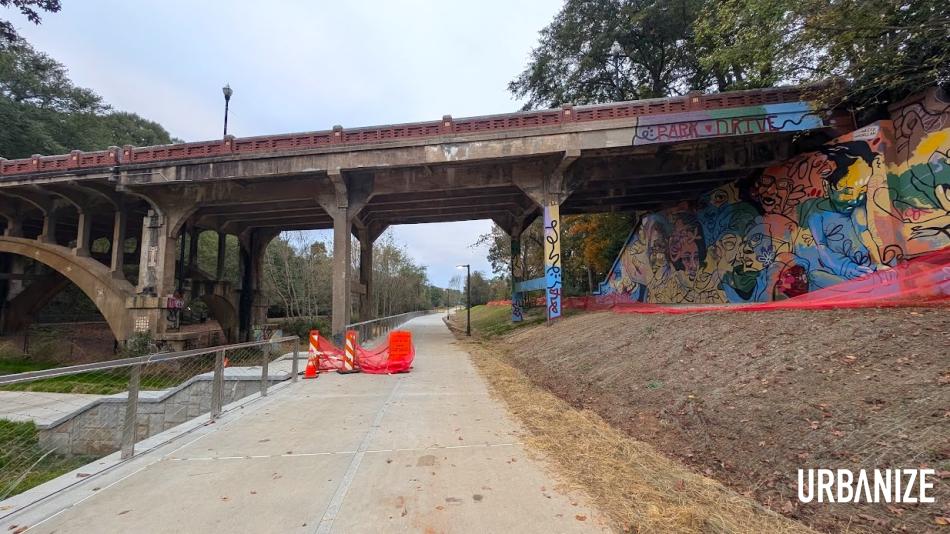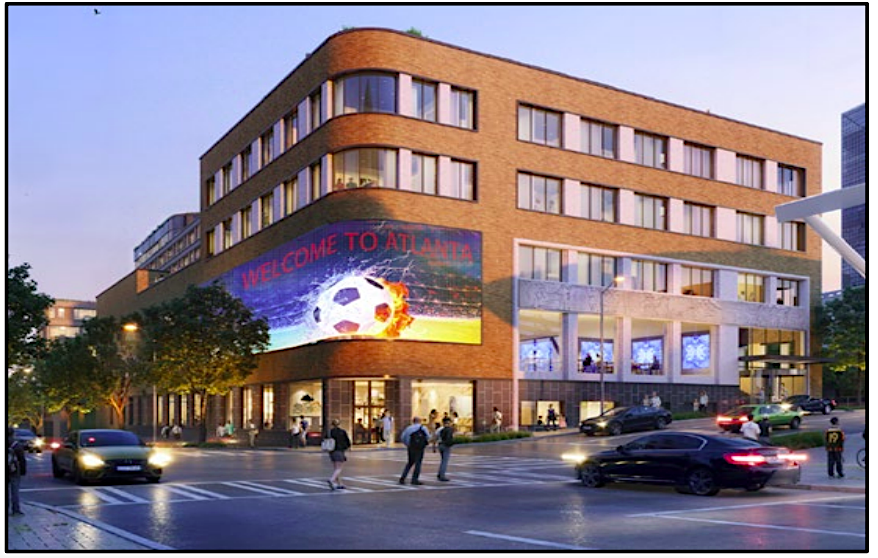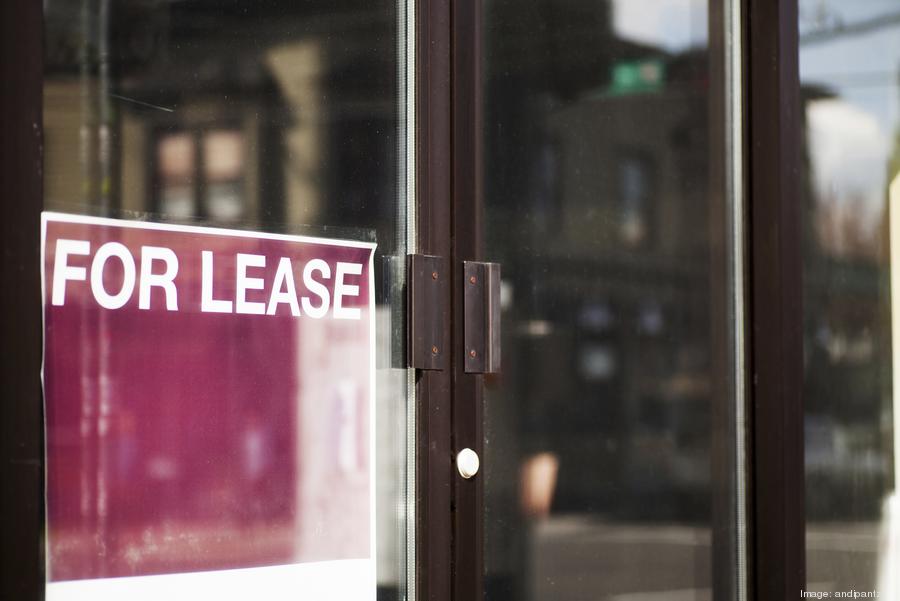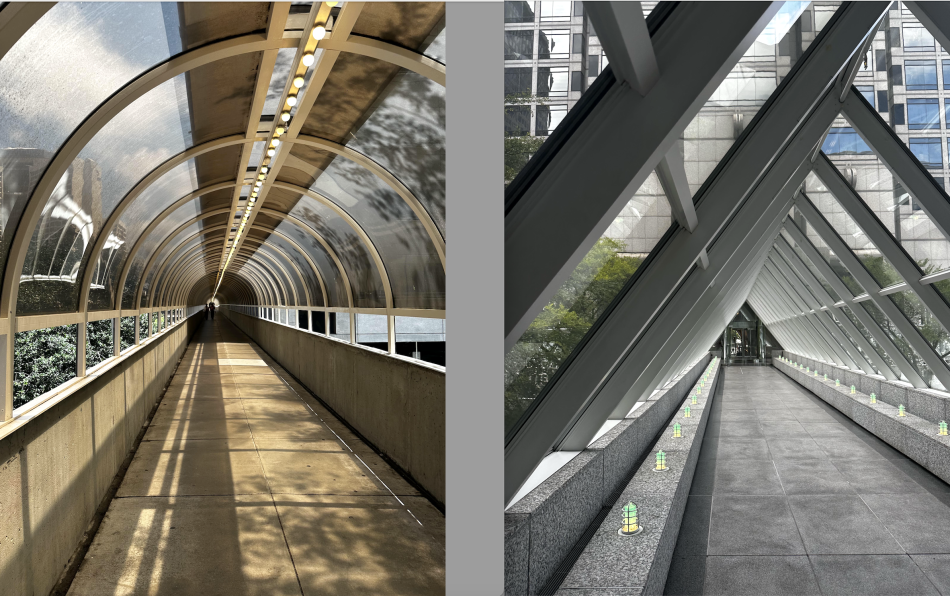
Letter to Editor: Hands off Portman’s iconic downtown skybridges
Letter to Editor: Hands off Portman’s iconic downtown skybridges
Josh Green
Wed, 10/01/2025 – 08:20
Below is a Letter to the Editor submitted this week by Atlanta-based professor, writer, and artist Matthew Terrell, published in full.
…
Dear Editor,
I would like to publish this critique of a recent piece you published:
I’ve been following the circulation of “The Atlanta We Inherit: History, Architecture, and the Fight for Public Space” and feel compelled to weigh in as both a journalist and professor who has researched and written extensively about John Portman’s skybridges.
The piece opens with the claim: “Today, more than 70 of Portman’s skywalks still crisscross downtown Atlanta.” That number is flat-out wrong. Atlanta does not have 70 Portman skybridges—the more accurate number is closer to 17.
This is not a small error.

Examples of John Portman’s temperature-controlled skybridges in downtown Atlanta today. Courtesy of Matt Terrell
When the first line of a publication is exaggerated by a factor of four, it immediately undermines the credibility of the entire piece. If a reader can’t trust the most basic, easily verifiable fact, why should they trust the more complex arguments that follow?
For reference, here is my reporting in the Atlanta Journal-Constitution, which was based on factual records and direct observation: “Like ’em or not, skybridges are a defining element of Atlanta’s cityscape.“
Beyond the numbers, I also find the essay difficult to follow. It mixes together metaphors about bones, ribs, and memory with speculative design gestures like rotating bridge frames and wind simulations—but without clear evidence, feasibility, or explanation of how these ideas would actually work in practice.
The result feels more like a stream of poetic imagery than a coherent or rigorous argument about architecture or public space.
Most troubling, the piece misunderstands how skybridges actually function. They are not simply barriers to urban interaction; they serve circulation, connectivity, and climate protection in a city where summer heat and storms make pedestrian movement at street level difficult. Any serious critique of skybridges has to balance their practical utility with their social and urban impact. That balance is missing here.
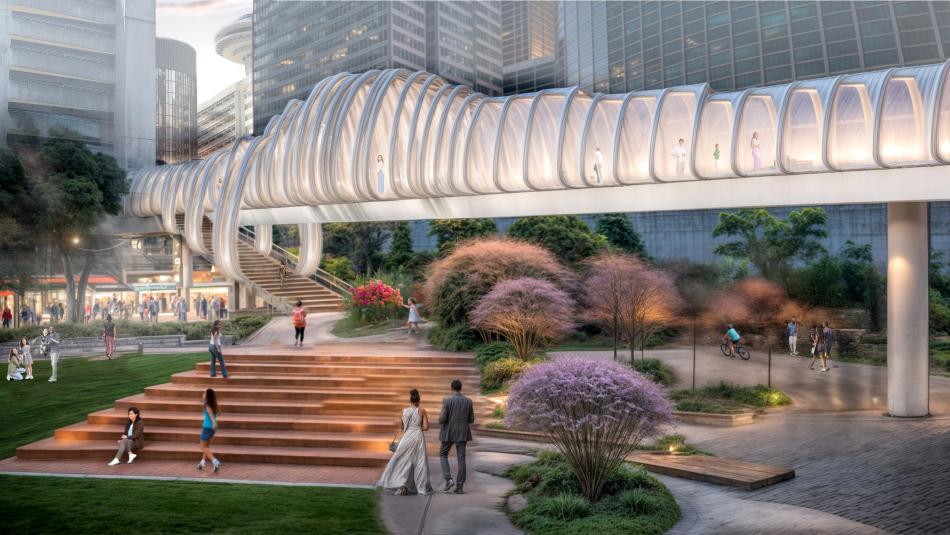
The hypothetical vision for skywalks as “catalysts for connecting people, programs, and public life,” as compiled by architect and designer Bushra Aumir. Courtesy of Bushra Aumir; Page/Stantec
To me, this isn’t just a case of swapping “70” for “17.” The factual error in the opener signals a lack of rigor that casts doubt on the validity of the entire work. Publications and institutions that lend credibility to a piece like this—and continue to circulate it—should think carefully about the standard of accuracy they are upholding.
Atlanta deserves better than to have its history and architecture distorted by careless exaggeration.
Editor’s note: We reached out to the essay’s author—architect and designer Bushra Aumir—for information on her logic for tabulating the number of Portman skybridges downtown. Charles Barrett, associate media coordinator with Aumir’s firm Stantec, responds as follows:
“To clarify, the intent of that sentence was to reference the broader network of both skybridges and underground tunnels in downtown Atlanta, not just those designed by Portman. Based on research and mapping, there are approximately 25 above-ground bridges within downtown, with the remainder being underground connections or slightly outside the downtown boundary. The total figure of around 70 was drawn from a combination of that research and secondary sources. That said, I agree the original wording could have been clearer, and I appreciate you reaching out for confirmation… The figure refers to a mix of above- and below-ground infrastructure influenced by Portman’s typology, rather than solely Portman-designed bridges.”
…
Matthew Terrell is a writer and artist based in Atlanta. His work has appeared locally in the Atlanta Journal-Constitution, ArtsATL, and Creative Loafing; on the national and international level, he has written for Slate, Vice, Huffington Post, SF Weekly, and more. He is an assistant professor in the School of Communication and Media at Kennesaw State University.
…
Follow us on social media:
Twitter / Facebook/and now: Instagram
• Recent Letters to the Editor (Urbanize Atlanta)
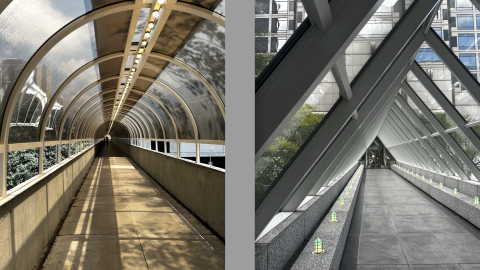
Letter to Editor: Hands off Portman’s iconic downtown skybridges
Josh Green
Wed, 10/01/2025 – 08:20
Below is a Letter to the Editor submitted this week by Atlanta-based professor, writer, and artist Matthew Terrell, published in full. …Dear Editor,I would like to publish this critique of a recent piece you published:I’ve been following the circulation of “The Atlanta We Inherit: History, Architecture, and the Fight for Public Space” and feel compelled to weigh in as both a journalist and professor who has researched and written extensively about John Portman’s skybridges.The piece opens with the claim: “Today, more than 70 of Portman’s skywalks still crisscross downtown Atlanta.” That number is flat-out wrong. Atlanta does not have 70 Portman skybridges—the more accurate number is closer to 17. This is not a small error.
Examples of John Portman’s temperature-controlled skybridges in downtown Atlanta today. Courtesy of Matt Terrell
When the first line of a publication is exaggerated by a factor of four, it immediately undermines the credibility of the entire piece. If a reader can’t trust the most basic, easily verifiable fact, why should they trust the more complex arguments that follow?For reference, here is my reporting in the Atlanta Journal-Constitution, which was based on factual records and direct observation: “Like ’em or not, skybridges are a defining element of Atlanta’s cityscape.”Beyond the numbers, I also find the essay difficult to follow. It mixes together metaphors about bones, ribs, and memory with speculative design gestures like rotating bridge frames and wind simulations—but without clear evidence, feasibility, or explanation of how these ideas would actually work in practice. The result feels more like a stream of poetic imagery than a coherent or rigorous argument about architecture or public space.Most troubling, the piece misunderstands how skybridges actually function. They are not simply barriers to urban interaction; they serve circulation, connectivity, and climate protection in a city where summer heat and storms make pedestrian movement at street level difficult. Any serious critique of skybridges has to balance their practical utility with their social and urban impact. That balance is missing here.
The hypothetical vision for skywalks as “catalysts for connecting people, programs, and public life,” as compiled by architect and designer Bushra Aumir. Courtesy of Bushra Aumir; Page/Stantec
Courtesy of Bushra Aumir; Page/Stantec
To me, this isn’t just a case of swapping “70” for “17.” The factual error in the opener signals a lack of rigor that casts doubt on the validity of the entire work. Publications and institutions that lend credibility to a piece like this—and continue to circulate it—should think carefully about the standard of accuracy they are upholding. Atlanta deserves better than to have its history and architecture distorted by careless exaggeration.Editor’s note: We reached out to the essay’s author—architect and designer Bushra Aumir—for information on her logic for tabulating the number of Portman skybridges downtown. Charles Barrett, associate media coordinator with Aumir’s firm Stantec, responds as follows: “To clarify, the intent of that sentence was to reference the broader network of both skybridges and underground tunnels in downtown Atlanta, not just those designed by Portman. Based on research and mapping, there are approximately 25 above-ground bridges within downtown, with the remainder being underground connections or slightly outside the downtown boundary. The total figure of around 70 was drawn from a combination of that research and secondary sources. That said, I agree the original wording could have been clearer, and I appreciate you reaching out for confirmation… The figure refers to a mix of above- and below-ground infrastructure influenced by Portman’s typology, rather than solely Portman-designed bridges.”…Matthew Terrell is a writer and artist based in Atlanta. His work has appeared locally in the Atlanta Journal-Constitution, ArtsATL, and Creative Loafing; on the national and international level, he has written for Slate, Vice, Huffington Post, SF Weekly, and more. He is an assistant professor in the School of Communication and Media at Kennesaw State University….Follow us on social media: Twitter / Facebook/and now: Instagram • Recent Letters to the Editor (Urbanize Atlanta)
Tags
Bureau of Big Ideas
Common Edge
John Portman
Downtown Atlanta
John Portman and Associates
Portman
Atlanta Architecture
Atlanta History
Downtown News
Friday Fun Bag
Hamster Tubes
Dragon Con
Bushra Aumir
Page
Stantec
Letter to the Editor
Letters to Editor
Letters to the Editor
Op-ed
Images
Examples of John Portman’s temperature-controlled skybridges in downtown Atlanta today. Courtesy of Matt Terrell
The hypothetical vision for skywalks as “catalysts for connecting people, programs, and public life,” as compiled by architect and designer Bushra Aumir. Courtesy of Bushra Aumir; Page/Stantec
Courtesy of Bushra Aumir; Page Stantec
Courtesy of Bushra Aumir; Page/Stantec
Subtitle
Professor, writer responds to architect’s proposal to redevelop elevated walkways as mixed-use notes
Neighborhood
Downtown
Background Image
Image
Before/After Images
Sponsored Post
Off Read More

